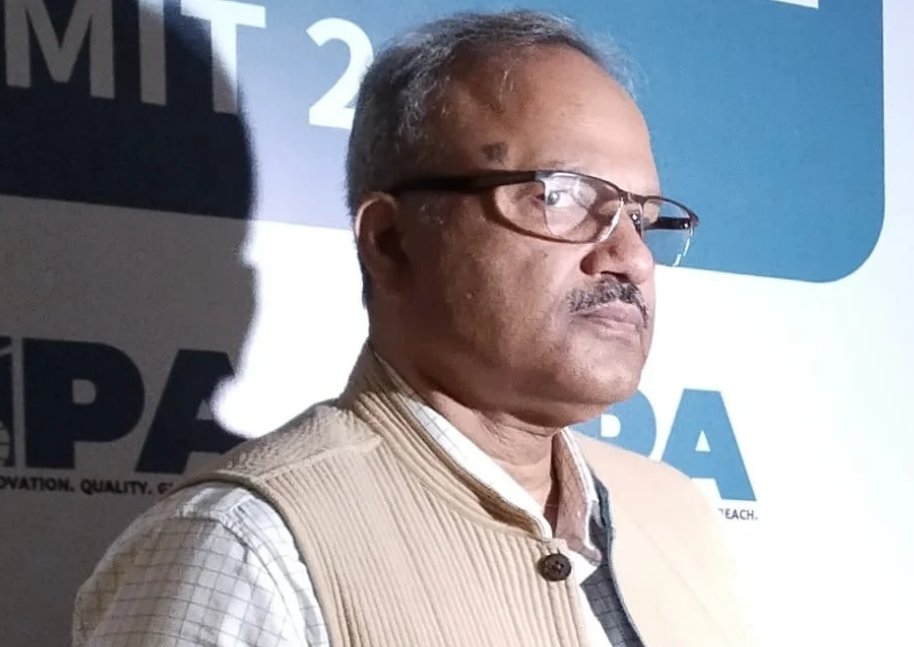The main challenge is resistance to change which we’re addressing through focused interventions and training: Dr Rajeev Raghuvanshi
July 06, 2024 | Saturday | Interviews | By Bhagwati Prasad, Mumbai
Dr Rajeev Raghuvanshi, the Drugs Controller General of India (DCGI), shares his views on the importance of data integrity across the pharmaceutical value chain, the challenges of regulatory compliance, and the initiatives being undertaken to improve the system on the side-lines of the two-day 9th Global Pharmaceutical Quality Summit (GPQS) which concluded on June 28, 2024, in Mumbai.
In an exclusive interview with BioSpectrum India, Raghuvanshi emphasises the need for a structured approach to audits, the importance of innovation in marketing, and the necessity of capacity building among manufacturers and regulators.
Could you elaborate on the importance of data integrity in the pharmaceutical value chain?
Data integrity is crucial because it ensures the accuracy and reliability of information throughout the entire pharmaceutical value chain. Every part of this chain, from raw material sourcing to the distribution of finished products, must maintain high standards of data integrity. This is essential for ensuring the safety and efficacy of drugs.
The Central Drugs Standard Control Organisation (CDSCO) will soon begin auditing large pharmaceutical units to ensure compliance with the revised Schedule M guidelines, which were notified in early January. Schedule M of the Drugs and Cosmetics Rules 1945 prescribes good manufacturing practices (GMP) for pharmaceutical products.
Approximately 250 companies have been identified for these audits. Additionally, we are ramping up manpower by planning to recruit at least 250 engineers. I have also proposed the creation of an internal scientific cadre at the CDSCO to review company applications. There is a strong emphasis on a structured approach to audits, the importance of innovation in marketing, and the necessity of capacity building among manufacturers and regulators.
What steps are being taken to address issues in the initial phases of drug approval, especially for global molecules approved elsewhere?
We are focusing on the integrity and compliance of Phase 1 clinical trials, particularly for global molecules approved in other countries. It’s important to ensure that these trials meet our standards. We are also reviewing policies to address any gaps and improve the overall regulatory framework.
Can you explain the current approach to public testing labs and structured audits?
We have transitioned to using public testing labs and are now implementing structured audits based on specific complaints. Previously, clinical trial audits were conducted in an ad-hoc manner, but now we are moving towards a more systematic approach. Every part of the value chain is being scrutinised to ensure compliance.
What are the challenges faced by MSMEs in regulatory compliance?
MSMEs often lack fully equipped quality control labs and may struggle with the costs associated with compliance. However, it’s essential for them to adhere to regulatory standards to ensure product safety and quality. We are working on capacity-building programmes to help these companies improve their compliance capabilities.
How is the regulatory system addressing the large number of products and manufacturers for a single molecule?
There is a need to streamline the number of products and manufacturers for each molecule. Innovation-based marketing should be encouraged to reduce redundancy. The regulatory system is being restructured to limit the number of brands and products for each molecule to ensure better quality control.
What measures are being taken to improve regulatory inspection and oversight system?
We are increasing the number of inspectors and improving the overall inspection framework. This includes training inspectors in scientific review and audit processes to ensure they are well-equipped to handle the complexities of modern pharmaceuticals.
What are some of the initiatives undertaken for capacity building and improving the regulatory framework?
We are developing a comprehensive system that integrates state regulatory functions, customs, and other partner organisations. This includes tracking the supply chain from raw material sourcing to distribution. Capacity building is also a priority, with programmes aimed at improving the skills and knowledge of both regulators and manufacturers.
What is the government's approach to addressing compliance issues among manufacturers?
The government recognises the need for stricter compliance and has initiated measures to address these issues. This includes conducting more technical audits, on-site inspections, and ensuring that manufacturers adhere to regulatory standards. The goal is to create a culture of compliance where manufacturers proactively address issues rather than waiting for regulatory intervention.
What challenges do you foresee in implementing these changes, and how are they being addressed?
The main challenge is resistance to change. Some stakeholders may be reluctant to adopt new practices. However, we are addressing this through focused interventions, training programmes, and clear communication of the benefits of compliance. Our aim is to create a robust regulatory environment that ensures the highest standards of drug safety and efficacy.
Any final thoughts on the future of pharmaceutical regulation in India?
The future of pharmaceutical regulation in India is promising. With continuous improvements in our regulatory framework, increased capacity building, and a focus on data integrity, we are well on our way to ensuring that the Indian pharmaceutical industry maintains the highest standards of quality and safety.
Bhagwati Prasad, Mumbai










